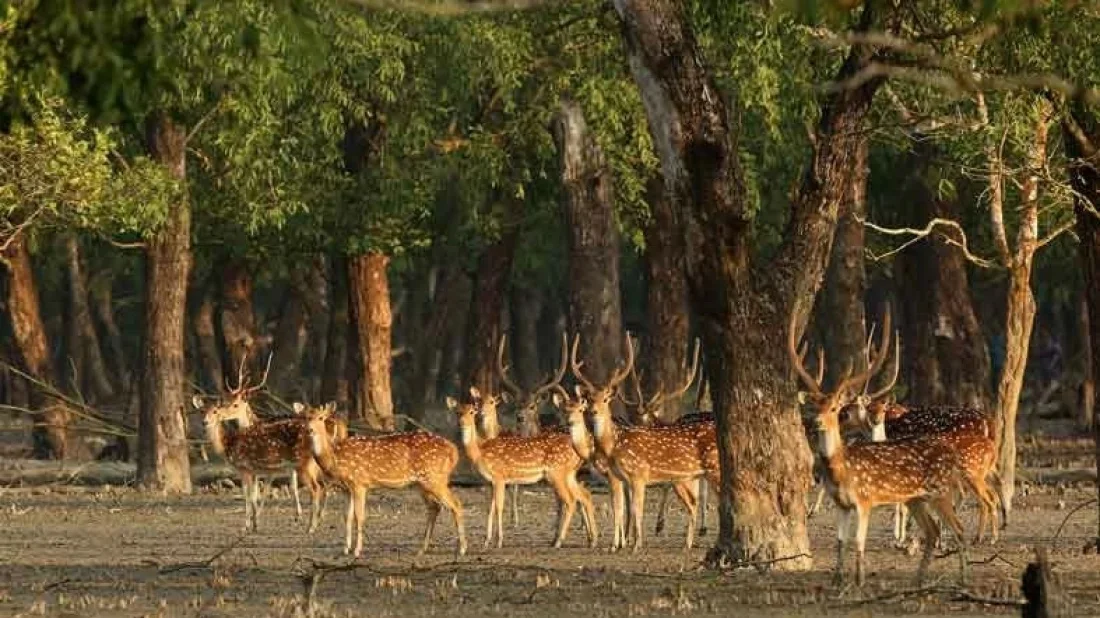Cyclone Remal: 30 deer carcass recovered from Sundarbans
Share on:

Cyclone damaged 25 patrol posts, 80 freshwater ponds
Cyclone Remal has caused extensive damage in the Sundarbans, resulting in the death of deer and other animals.
Thirty dead deer were recovered from the Katka and Dubla areas of the forest during a search conducted from morning to noon on Tuesday.
Additionally, forest guards rescued 15 more injured deer.
The cyclone also damaged 25 patrol posts and at least 80 freshwater ponds, which have been contaminated by saltwater intrusion.
The Conservator of Forests (CF) of Khulna Mihir Kumar Do confirmed the information on Monday afternoon.
He mentioned that searches are ongoing throughout the Sundarbans to locate more deer.
“Since Sunday afternoon, Cyclone Remal’s rampage and tidal waves have caused significant damage to the wildlife of the Sundarbans,” Mihir Kumar Do said.
“In addition to the loss of trees, various forest department offices, patrol boats, tin sheds, windows, doors, solar panels, and infrastructure have been extensively damaged. The jetty in the Katka Sanctuary has been washed away into the Bay of Bengal by the tide. Tin sheds of infrastructure, including kitchens of 25 patrol posts and various forest offices in Dubla, Katka, Kochikhali, and Bogi, were blown away,” he added.
The CF further said that freshwater ponds within the Sundarbans have been submerged by water due to high tides of 8-10 feet.
As a result, forest workers and wild animals, including tigers and deer, are facing a shortage of fresh water. There have also been reports of wildlife being swept away by high tides and dying.
Mihir Kumar Do warned that besides the deer, more wild animals might have died, and forest guards are actively searching for these animals.
The cyclone has also damaged various infrastructures of the Karamjal wildlife breeding and tourism centre in East Sundarbans.
Hawladar Azad Kabir, officer-in-charge of the East Sundarbans Karamjal Wildlife and Breeding Centre, said that the wooden poles for tourist traffic were damaged by Cyclone Remal, and many trees were broken. However, it is not yet possible to ascertain the full extent of the damage to the entire Sundarbans, including its vegetation.
Dr Sheikh Faridul Islam, chairman of Save the Sundarbans Foundation, emphasized the importance of maintaining sufficient high hills and shelters for the wild animals of the Sundarbans.
He suggested that such measures could minimize erosion damage and that the banks of freshwater ponds should be raised to prevent floodwater from entering.

